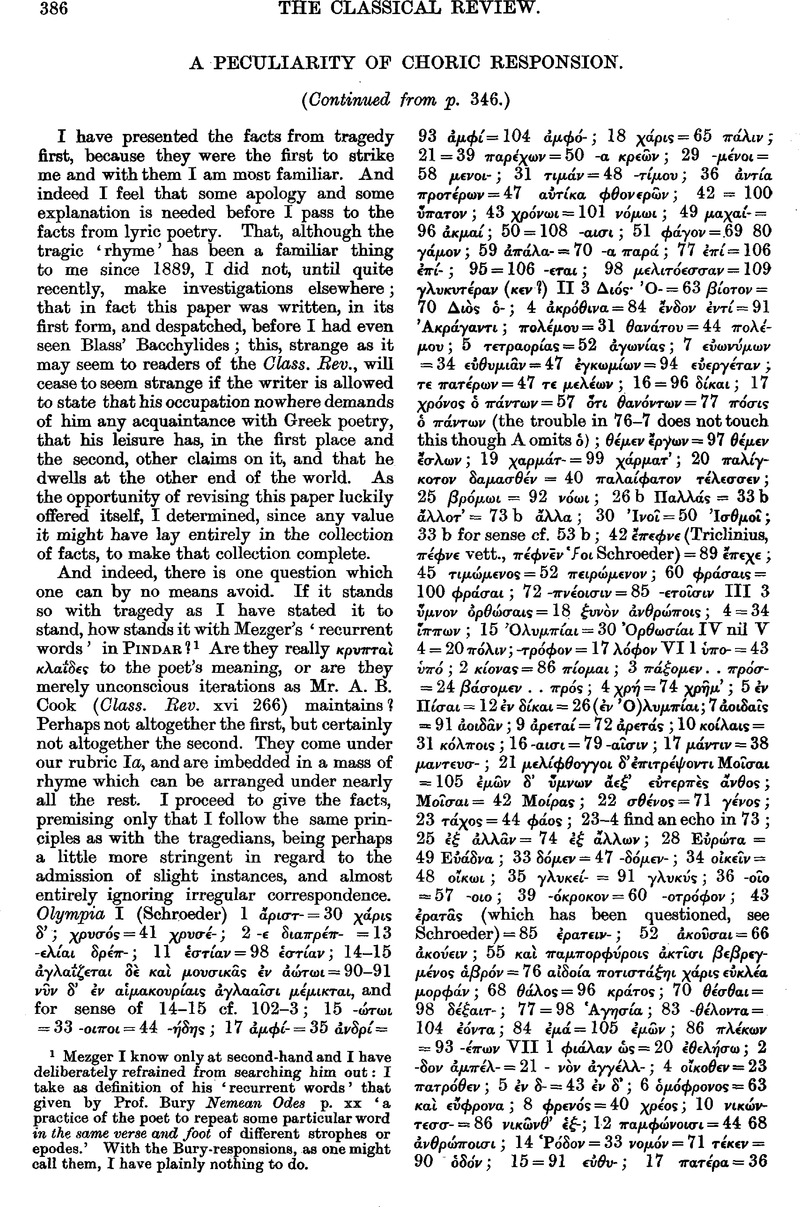No CrossRef data available.
Article contents
A Peculiarity of Choric Responsion
Published online by Cambridge University Press: 27 October 2009
Abstract

- Type
- Original Contributions
- Information
- Copyright
- Copyright © The Classical Association 1906
References
page 386 note 1 Mezger I know only at second-hand and I have deliberately refrained from searching him out: I take as definition of his ‘ recurrent words’ that given by Prof. Bury Nemean Odes p. xx ‘a practice of the poet to repeat some particular word in the same verse and foot of different strophes or epodes.’ With the Bury-responsions, as one might call them, I have plainly nothing to do.
page 391 note 1 While contesting Mr. Cook's perhaps most important conclusion, I by no means wish to meddle with the general argument of his paper. But there is one poem I must rescue from his hands, Apuleius ᾽Ανεχμενος ex Menandro (anth. lat. 114 ap. Baehrens PLM IV p. 104). If the assonances there are unconscious, then I expect someone to argue that the alliteration of Clasped and clothed in the cloven clay did not strike the poet's ear and that when he put Nephelidia at the end of the Heptalogia he was seriously trying to show how the other six should have written. That poem of Apuleius does not belong to ancient literature at all; it stands among the beginnings of a new music ; it foretells an invasion of rhyme from the end into the middle parts of the verse, a marination of the whole line in rhyme, assonance, and alliteration. This we may perceive in its primitive form here or in Nor Mars his sword nor warres quick fire shall burne or in the wall-known En robe d'or il adore of Verlaine's Parsifal sonnet (exactly the malas adorent ore of Apuleius); more subtly in Descendre à travers ma rêverie en silence or Las de l'amer repos où ma paresse offense (where paresse stands to repos, for sound, as ‘Eλνα to νεφλα and is nearer in sense): it is this that gives all its terrible force to the word mal in the line Similemente il mal seme d'Adamo, which is hardly anything but veiled rhyme and assonance from the first syllable on.
page 392 note 1 If Blass is right in making his fr. 4 of Bacchylides antistrophic, he might keep his one-syllable rhyme in 11 and at once fill the measure and explain the loss by inserting δια before δμναται. It is true that the word does not occur in our Bacchylides.


